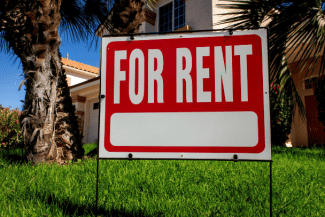A Landlord’s Guide to Late Fees

But as with anything in this business, there’s no hard-and-fast rule for how late fees work. When should the charge take effect? Should you offer a grace period before you tack on the fee? And if you do charge one, how much is appropriate? This guide can answer all those questions and more.
What’s a late fee, and should you charge one?
A late fee is essentially just an extra charge added onto a tenant’s existing rent payment when they fail to pay on time. The majority of landlords charge these, and as long as they’re built into the lease agreement from the beginning, they’re legal to charge if the tenant breaks the rules.
You don’t have to charge a late fee on rent, of course, and there are definitely pros and cons to doing so. On the upside, late fees help encourage on-time payments, and they compensate you for any bills you’re late on should the delayed rent hurt your finances.
The downside is they could make paying back rent even more difficult for your tenant. If they’re truly in a financial bind, adding more to their debt isn’t going to help them pay it off — it may just make them less likely to settle their bill at all.
How much should your late fee be?
Most states and some municipalities have laws regarding how high late rent fees can go, so check with your local housing department or a real estate attorney in your area to see what laws you might need to comply with. Here in Texas, for example, you can’t charge more than 10% to 12% of the monthly rent, depending on how big your property is.
Generally speaking, most landlords opt for less than that — usually around 5% of the rent. On a $1,200 unit, that would mean a fee of $60. You can also opt for a simple, flat fee rather than calculating a percentage. Under this model, $50 to $75 is pretty standard.
In some states, you can also charge fees for every day the rental payment remains late. Keep in mind these can really add up, making it even more difficult for the tenant to settle their debts. (It could even lead to eviction.)
Late fee best practices
If you do opt to charge late payment fees, there are a few general rules you should follow.
1. Include your late fee policies in your rental agreement
You need to make the late rent fee legally binding and ensure your tenant knows the policy well before moving into the property. The lease should detail exactly when a rent payment is considered “late,” what day of the month the late fee will go into effect, and the total charge the tenant can expect.
2. Have a grace period
It’s common to offer tenants a grace period — usually three to five days between when rent is due and when the late fee will officially hit. If you choose to offer a grace period, be sure to stay on top of when a tenant has entered it. Use the time to reach out and remind them rent is due and a late fee is coming. Often, this will motivate them to pay up before it’s too late.
3. Be prepared for late fees to be ignored
If a tenant’s rent is late regularly, they likely won’t take late fees seriously, either. In this case, you’ll need to take any late fees out of their security deposit when they move out. If this happens, make sure you document the unpaid late charges and include them in your itemized list of expenses when deducting from their security deposit.
Have a constantly late tenant?
You might be reading this guide because of a routinely late tenant who’s giving you trouble. If that’s the case, reach out to the renter and learn more about their circumstances. There’s a chance their paychecks don’t align with when rent is due, making it difficult to make on-time payments consistently. Here, you might consider adjusting your rent deadlines appropriately. (Pro tip: If you’re worried about making your mortgage payment, call your servicer and ask about adjusting your due date, too.)
You can also enable credit card payments. Sometimes, tenants just need a few days to gather the cash needed for rent. Allowing for card payments allows them to finance the rent for that short period and then pay it off on their own time as they see fit. Tenants can make payments online at no cost to you on a platform like PayRent. This can allow tenants to set up recurring payments to ensure their rent is never late.
The bottom line
Late fees are standard practice for most rental property investors. If you’re thinking of charging your tenants one, make sure you study up on local laws, calculate a reasonable late fee, and include a detailed policy in your lease agreement.
If you need additional guidance, reach out to a real estate attorney in your area. They can point you toward any local regulations and practices you might need to fall in line with.
Source: fool.com















 Accessibility
Accessibility